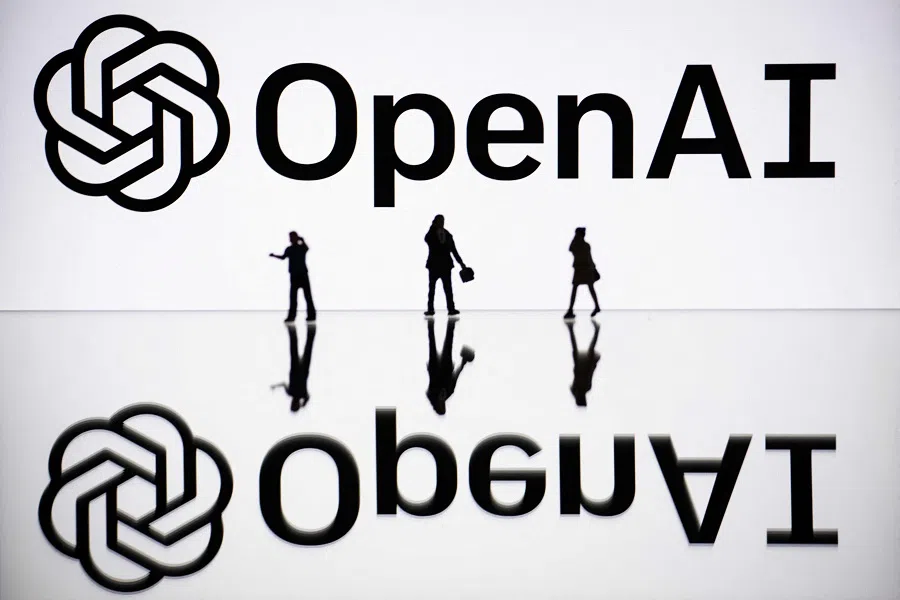Will AI reshape the translation industry? Insights from a seasoned educator
Translation studies professor Xiao Weiqing says that large language models will raise the bar for translation, squeezing the survival space for junior and intermediate-level translators and potentially edging them out of the industry. But all is not lost.

Two months ago, a friend of mine vented to me that he had not landed any translation contracts for 2024 yet. This was very different from the same time last year and the year before the last, when contracts were pouring in like crazy. We both knew what had happened, yet I found myself at a loss for comforting words. In a similar vein, the ripple effect of AI technology has complicated my own professional journey in education.
As an educator specialising in translation courses for over two decades, I have constantly experienced the onslaught of technological advancements firsthand. Consider audiovisual translation (AVT). Technological innovations such as automatic speech recognition, automatic time coding, machine translation and AI dubbing have dramatically eased the challenges of this field. All the deserted human practices like listening and translating, lip-syncing and recording used to be on my teaching agenda, and I find myself annually revising the curriculum to stay current.
Things come and go too fast. Despite these advances, the highlight of my course remains the students' dubbing showcase. Human voices, as demonstrated by the students and full of emotional tones, are captivating.
This year, for instance, the dawning of Sora, OpenAI's AI text-to-video model, has prompted yet another reevaluation of my AVT syllabus. I will include a new bonus module on AI-assisted video production. Sora may be proficient in synthesising human-like speech and visuals, but the course continues to stress the importance of the human touch, particularly in the nuanced skill of voice acting and the creative decisions that go into localising content for diverse audiences.
... for high-stakes translation projects, rigorous scrutiny by seasoned human translators and copy editors will be critical in addressing the subtleties and nuances that LLMs might overlook.
AI makes mistakes too
Similarly, last year, the advent of ChatGPT disrupted my teaching plan for my Advanced Translation course. Initially distressed, I sought remedies. First, I asked my students to sign an affidavit when they handed in their translation assignments to promote integrity - an approach that proved effective.
Gradually I came to find ChatGPT not an enemy but a good assistant to my teaching, especially at times when I need to offer diverse alternatives to a model translation. ChatGPT is smarter than many existing machine translation tools, but to my delight, it still lets mistakes slip in. When that happens, I would seize the opportunity to highlight those mistakes and make a public spectacle of them in class, turning them into teaching moments.

To the best of my knowledge, large language models (LLMs) boast speed, efficiency, low cost, multilingual support, strong interdisciplinary capability and consistency - all advantages over human translators.
Yet compared to highly skilled professional translators, their disadvantages are also apparent: ideological and stance nuances, cultural expressions and colloquialisms may befuddle them; privacy and data security concerns loom due to non-local deployments; they lack the linguistic sensitivity necessary for capturing subtle distinctions or the creativity required for artistic texts, resulting in generic output that lacks vibrancy and individuality; these models do not independently verify information, which can result in errors.
This paradigm shift necessitates translators to elevate their linguistic prowess and adaptability to withstand the challenges of generative AI in translation.
Roles in translation work may be reconfigured
Considering all this, a strategic reassessment of roles is demanded within the industry, notably between translators and copy editors. As LLMs take on more of the initial heavy lifting in translation, the role of the copy editor could arguably become more prominent; for high-stakes translation projects, rigorous scrutiny by seasoned human translators and copy editors will be critical in addressing the subtleties and nuances that LLMs might overlook.
The landscape of translation practice, teaching and technology will undergo a significant change, and indeed, it already has. LLMs have raised the bar for translation, squeezing the survival space for junior and intermediate-level translators and potentially edging them out of the industry. Yet the demand for human translators' expertise, cultural nuance, and creativity persists, especially for specialised and sensitive work.
This paradigm shift necessitates translators to elevate their linguistic prowess and adaptability to withstand the challenges of generative AI in translation. New graduates majoring in translation may well find that there are very few positions for traditional translators in the job market. For those at the beginning of their careers, navigating this new landscape requires resilience, adaptability and a willingness to engage with technology as a complement to their linguistic skills.
Therefore, if language and translation do not enchant you, or if you lack innate aptitude, this industry might not be right for you. Nevertheless, there is also no need to overstate the negative impact of AI on the translation industry, as the waves of change will sweep across virtually almost all sectors. Adaptation is not just an option; it is imperative for future success.



![[Video] George Yeo: America’s deep pain — and why China won’t colonise](https://cassette.sphdigital.com.sg/image/thinkchina/15083e45d96c12390bdea6af2daf19fd9fcd875aa44a0f92796f34e3dad561cc)
![[Big read] When the Arctic opens, what happens to Singapore?](https://cassette.sphdigital.com.sg/image/thinkchina/da65edebca34645c711c55e83e9877109b3c53847ebb1305573974651df1d13a)
